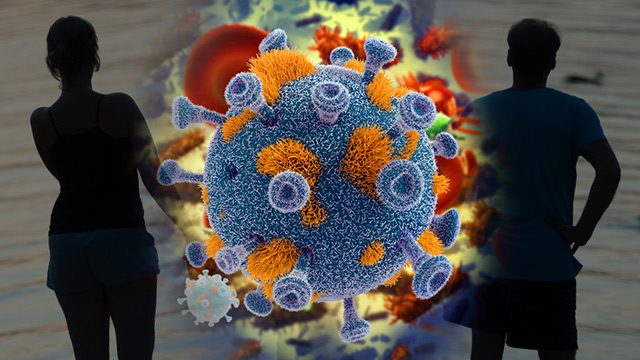SUMMARY
This is AI generated summarization, which may have errors. For context, always refer to the full article.

MANILA, Philippines – Are HIV infections in the country really linked to broken families, as asserted by an official from the Catholic Bishops’ Conference of the Philippines (CBCP)?
As far as the health department is concerned, nothing in the patients’ profile suggests this.
“In the profile of the patients, it’s not a matter of OFW ba yung magulang, hindi e. Nandun yung lifestyle-related. In fact many of the patients, middle class. Hindi ibig sabihin na talagang hirap sa buhay,” Health Secretary Janette Garin said on Thursday, April 16.
(In the profile of the patients, it’s not a matter of whether the parents are OFWS, no. It’s lifestyle-related. In fact many of the patients, middle class. It doesn’t mean they are poor.)
In the Philippines, many Overseas Filipino Workers (OFW) are separated from their families for years because of better opportunities abroad.
The DOH recently reported a total of 646 new cases of HIV infections in February – the highest number since the Philippines’ first case in 1984. This number translates to 21 new infections every day.
A CBCP News article on Wednesday, April 15 quoted Fr Dan Vicente Cancino, the executive secretary of CBCP’s Episcopal Commission on Health Care (ECHC), as saying that many young people today lack family values formation, which affects ties with their families.
He then linked the “damaged” family ties to the rising number of HIV cases in the Philippines.
“Because of this, they were deprived of a deep parent-child relationship. The familial ties have been damaged. It is no wonder that many of our patients would come from ‘broken families,’ dysfunctional families,” Cancino said.
Lack of information, awareness
But Garin on Thursday said the rise in the cases boils down to lack of information on HIV, and a patient’s lack of awareness that he is already infected.
“If indeed there is a relationship, siguro yung iba parang naghahanap ng kasama sa buhay, pero if you do the profiling, hindi naman ganun,” the health secretary explained.
(If indeed there is a relationship, maybe some patients are looking for a partner in life, but if you do the profiling, it’s not broken families.)
But she agreed with the priest that “to a huge extent” values formation has something to do with it.
Health experts describe the HIV situation in the country as a “concentrated epidemic,” with pockets of administrative areas reporting more than 5% of HIV prevalence among specific populations. The epidemic in at least 6 Philippine cities may even become uncontrollable if nothing is done about it.
But official estimates show less than 1% among the general Filipino population are infected.
At this rate, the Joint United Nations Programme on HIV/AIDS (UNAIDS) said the Philippines will not meet the HIV/AIDS targets in the 2015 Millennium Development Goals. – Rappler.com
HIV cells image from Shutterstock
Family split up after a divorce image from Shutterstock
Add a comment
How does this make you feel?
There are no comments yet. Add your comment to start the conversation.